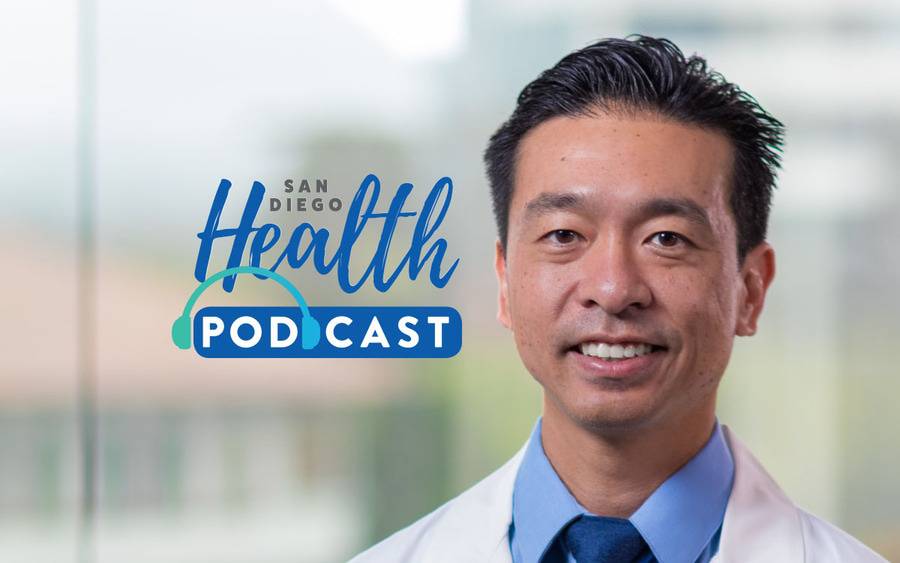What Do You Feel If You Have GERD? (podcast)
Scripps gastroenterologist explains symptoms and treatments

Dr. Franklin Tsai, Gastroenterologist, Scripps Clinic
Scripps gastroenterologist explains symptoms and treatments
Gastroesophageal reflux disease (GERD) is a common condition characterized by frequent bouts of heartburn and acid reflux. It affects between 10 and 20 percent of people in the US.
GERD can be uncomfortable, and for some, downright painful, but there are ways to mitigate the symptoms ranging from lifestyle changes to surgery.
In this episode of San Diego Health, host Susan Taylor and guest Franklin Tsai, MD, a gastroenterologist at Scripps Clinic Torrey Pines, discuss what causes GERD, its symptoms, who’s at risk, and potential treatment options. Dr. Tsai also outlines when you should seek medical attention and the risks of leaving GERD untreated.
Listen to the episode on causes and treatments for GERD
Listen to the episode on causes and treatments for GERD
Podcast highlights
Watch the video on symptoms and treatments for GERD
Watch the San Diego Health video with host Susan Taylor and Dr. Tsai discussing causes and treatments for GERD disease.